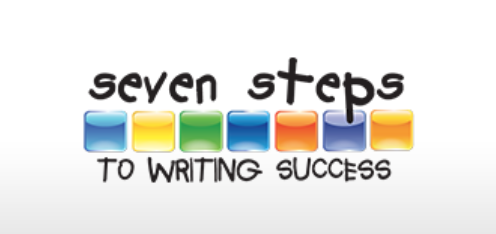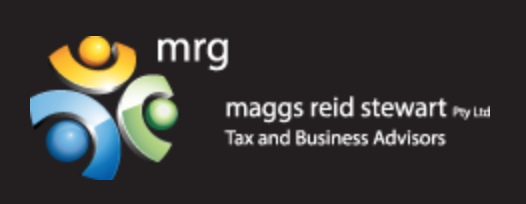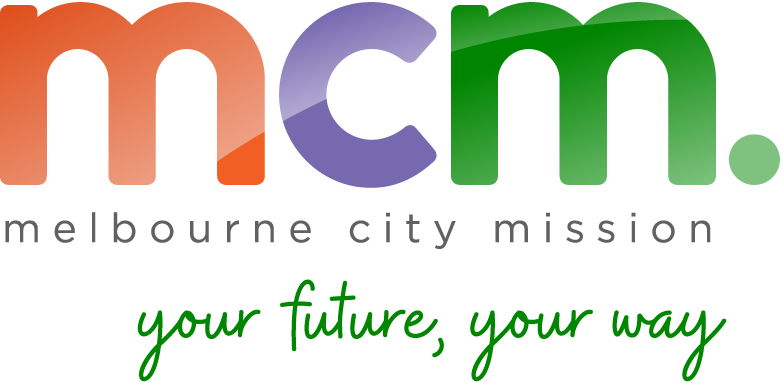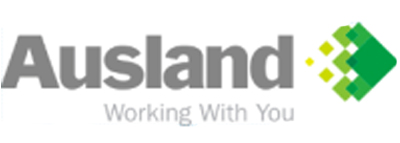Episode 5 Howardco with Keith Ayers
Subscribe for FREE to listen in your favourite podcast app
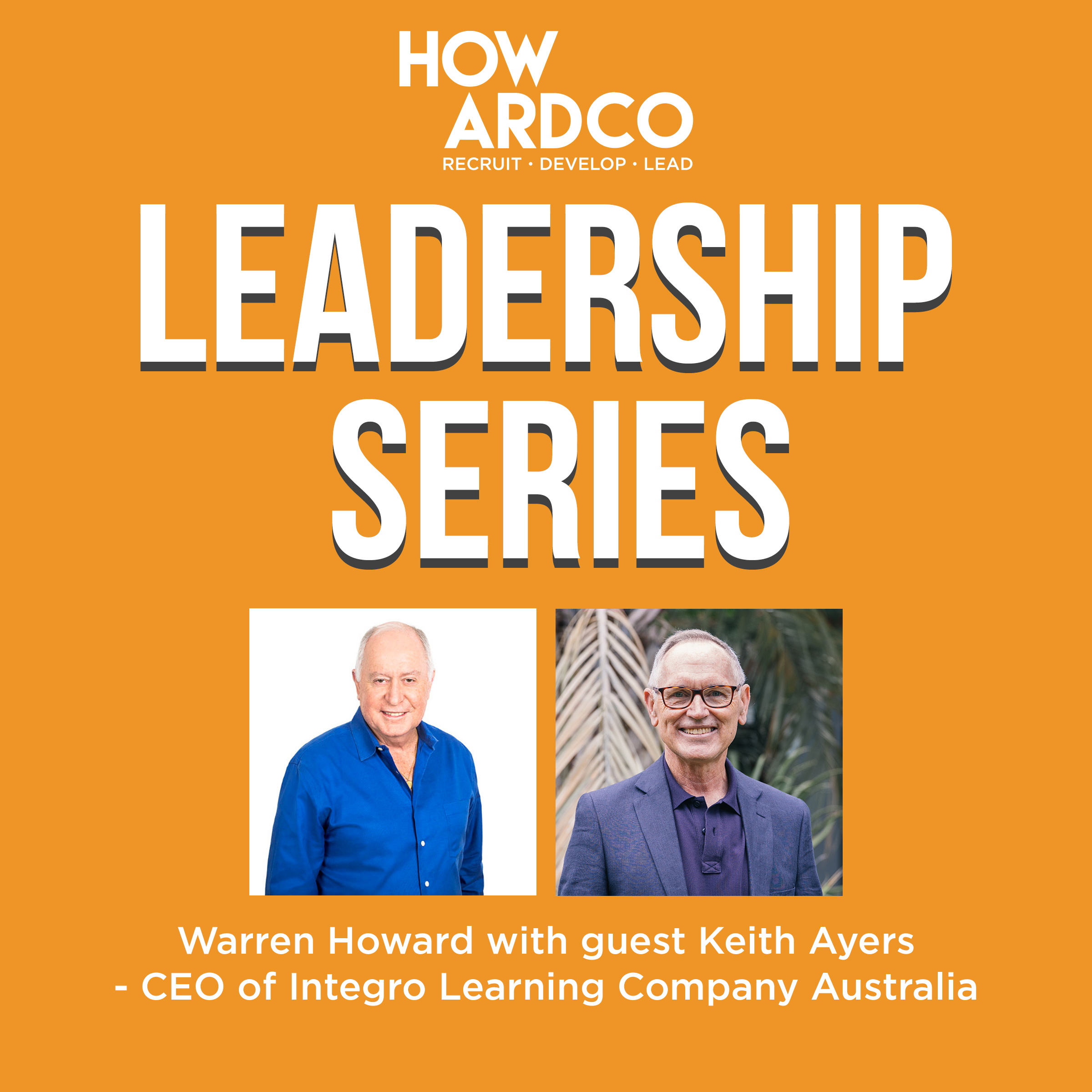
Warren (00:05):
Well, hello and welcome. I’m Warren Howard from Howardco business and HR solutions. Welcome to our leadership series. Our leadership theme this month is resilience. Anyone who has started and run a business will know that it’s never plain sailing. There’s no such thing as an overnight success, but the past 15 months have thrown up a new set of challenges for leaders and while change and uncertainty have been the norm, people in organizations have looked still to their leaders for resilience, support, and clarity of direction. Now, one person who can give us a particular insight into the leadership challenge from a number of perspectives is my guest today, Mr. Keith Ayers from Integro learning company. Keith has not only run his own training and development company for over 40 years, but as a leading industry facilitator on people and culture, Keith is a trusted advisor to many organizations around Australia and Keith understands what it takes for leaders to survive and thrive in challenging times. I’ve known Keith for over 10 years now, and I’m delighted to have the opportunity to share our conversation today with you. Integro provides us with fantastic support in the work that we do with everything disc programs, and I’m very much looking forward to hearing Keith’s views on resilience and leadership from his own personal and business perspective, but also his observations from working with leaders all around Australia. Welcome Keith.
Keith (01:39):
Thanks Warren. I really appreciate the invitation to do this
Warren (01:43):
Well, I’m the one who should be thanking you because I think this is going to be a fun interview, Keith, having seen you in action many times, especially when you’re facilitating workshops that I’ve attended. I know you’ve got some good stories to tell. So I’m looking forward to what you’ve got to tell us today. Let’s kick off with just a brief introduction. Keith, can you tell us a little bit about the background to your own career and, and what what’s brought you to where you are today?
Keith (02:10):
Yeah, well, my first real career was in the air force as a navigator. I did my navigators course and then went on to Hercules transports, then Canberra bombers in Vietnam. So going back to the seventies, I think I joined the air force in ‘67, something like that… giving away my age here. I mentioned that because it was towards the end of my seven years in the air force. So I had the opportunity to take on a couple of training roles and part of which was working with the air force cadets and that really got me interested in leadership development, watching these cadets go from grade eight when they start to grade 12 and coming out as really effective leaders, developing their leadership skills over that time. So when I came across Integro, which I accidentally did, but bumped into person who actually started it in Australia and learnt about Integro and that it basically integrates and abbreviates inter-personal growth.
Keith (03:07):
So we teach people skills and that really intrigued me and obviously about a of leadership development is developing people’s skills too. So I think within a couple of months of meeting Dave, I decided to join Integro and started out as a sales person because that’s what I was doing at the time I was selling life insurance. When I joined Integro after getting out of the air force and then went on to the states and did some training and became a facilitator or trainer, and then within four years, had the opportunity to take over the business. So I’ve been the CEO for 40 years now, and the business has evolved a lot over that time. We didn’t take on Disc until 1985. And then I had learned how to be a distributor as well as a consultant, coach, trainer, facilitator. I think it ties in with the subject of resilience, you know, when there’s a new challenge that comes up my first thought is well, okay, how do we overcome this challenge? It’s not like an obstacle to me, so yeah, I have been with Integro for 44 years.
Warren (04:09):
Congratulations Keith, I think that was one of the other reasons why I thought today would be a great opportunity to talk with you because 44 years investing a very big chunk of your life into the industry, as well as into the business that you are running, certainly gives you a very wide perspective. Well, let’s dive into the next question, which is what three words best describe your leadership experience at Integro over the last 15 months?
Keith (04:36):
I’m not sure how much you want me to elaborate on this, but the three words, uh, challenging, enlightening and rewarding.
Warren (04:42):
Well, let me throw that back to you. Of those three words, challenging, enlightening and rewarding, which one to you has the most importance, which one spells a story to you.
Keith (04:53):
I think sitting where I am today, rewarding, in the sense that the first two weeks of the lockdown from the last two weeks of March last year were two of the scariest weeks I’ve had in business, because as the distributors of everything Disc in Australia, and the only distributor in Australia, all of the profiles that were sold in Australia came through us and were being used for face-to-face training virtually a hundred percent and so big corporate clients, as well as small consulting clients like yourself, independent consultants and coaches. That’s all of our business basically, and it just basically ground to a halt. So, fortunately the government came in with some stimulus packages which helped us through, but also the enlightening thing for me was, and I’m bouncing around words now, but enlightening was how much people would jump on to virtual training, how quickly, and that really amazed me.
Keith (05:56):
We had to jump very quickly ourselves, and we started putting on a lot of webinars and virtual workshops and things like that to show people how they could potentially do this, on zoom. But the rewarding part is what impact it’s having and the business in the last three months is well ahead of what we were doing pre COVID. So the amount of training with this happening in Australia at the moment is more than we’ve ever had before in a month and every month seems to be the same.
Warren (06:30):
Not only have you recovered, but there’s been a rebound as well. Is it the access to the new technology that’s caused that? Or do you think there’s some sort of shift going on within businesses that mean they’re looking more towards the sort of services that you’re providing as well?
Keith (06:46):
Well, I think there’s been a big shift in business because companies are still, particularly in Victoria, with the lockdown and recnelty people having to work from home. So there’s not been any real serious attempt in Victoria to get masses of people back into the office. Whereas in other states we’re getting more, what they’re calling a hybrid model and certainly clients of mine in Sydney and other states, they’re not going back to everyone in the office from nine to five, five days a week. There’s going to be some degree of people working from home probably permanently, and that has a big impact on managing teams. If you’re having a team meeting, do you insist everybody comes into the office for the team meeting when you’ve been having team meetings on zoom anyway? You can’t tell your employees “no, we can’t do that”, because we’ve already done it.
Keith (07:35):
So the challenges of managing teams and building trust and connecting people, you know, all of the little conversations that people used to have when they were working in an office, just in the kitchen, getting a cup of coffee or the lunch room or whatever. All of that contributed to the relationships and the building of trust in the office. They’re not having those conversations, or much less of them than they used to. So there’s gotta be something done. What I’m seeing is that clients are using Disc as a tool to help reconnect people, and as you know, we’ve got this new online portal called catalysts with Disc. Now it’s an online system having a profile online instead of having it as a paper booklet. So that’s helping as well.
Warren (08:22):
That’s a really great insight Keith, into how businesses are tackling this new hybrid work environment. And we also know that part of employee’s engagement and team satisfaction is derived from the relationships but also derived from learning and development isn’t it. People listening, seeking that, as an important part of the way they view, how they like to work and how they like to grow in a business. They want to continue to develop and grow, and you know, we can’t allow something like lockdowns to actually stop us from doing that. We have will be resilient and adaptable to be able to keep finding new ways and better ways of keeping the teams together. Can we go on your business now, back to Integro and your 44 years. I don’t want to hark on that too much, Keith, but it’s a fantastic innings. You know, if we looked at resilience in terms of the history of your business, I’ve no doubt, you know, no businesses is plain sailing. What does resilience mean in terms of some of the hurdles you’ve had to overcome say, prior to what we experienced in the last 18 months?
Keith (09:35):
I haven’t kept track and I don’t particularly want to keep track of the number of economic downturns we’ve had in the 44 years. In more recent times, the ones that stand out, Paul Keating, the recession, we had to have, I think that was ’91 and then the GFC 2007/08/09, whatever it was. Then of course COVID, would be the big ones, but there were several other times where the economy wasn’t going very well and businesses stopped spending money. When they stopped spending money, the two things that happened immediately, they stop on training and advertising. Now, obviously we don’t do advertising , but the training side of things, we were often in a situation where sales just dropped significantly for a period of time until people felt the things were going to improve again. So we had to ride out a lot of different things like that.
Warren (10:28):
Does it make it an easier, Keith, knowing when the next challenge comes along, knowing that you have survived and overcome those previous challenges? Does it build up a sort of armory in you that goes, you know, I can beat this as well?
Keith (10:40):
Yeah, and I think I’ve never ever questioned the fact that I joined Integro, or why joined Integro. And I mentioned that Integro is an abbreviation of interpersonal growth, so we’re a people skills training company, and the first people’s skill is to build trust. The reason it’s the first one is if you don’t build trust, then the other people’s skills, aren’t going to be much use to you anyway. Right. And so, when I first came across Integro and I looked at the Integro trust model, which is basically a simple model that says, if you use these behaviors, you will build trust, and you do, it works. I thought everybody needs this. Every organization needs this, because people want to work for a company where they trust their coworkers and they trust their managers, right. People want to buy from companies that they can trust.
Keith (11:29):
They can trust to deliver what they say they’ll sell you. Right. And, and so trust is such an important foundation for success in business. And that’s what we do. We basically help companies build trust. And Disc is a very powerful tool for helping people do that. It’s easier to trust someone who’s different from you when you understand the difference. Why do they do that? It’s because they’re a D style or whatever it is, you know. I’m just as passionate about it today as I was when I joined, maybe more so.
Warren (12:01):
I think it definitely comes across, I’ve only seen that side of you, Keith. I think every time you’ve addressed a group that I’ve been part of, or we’ve dealt with each other, that enthusiasm for the work that you do, definitely rubs off . If Keith thinks it’s a good thing, it must be good.
Warren (12:21):
How has this, I guess, you know, your experience and your journey, how has that influenced your own approach to leadership and the way that you lead your own team?
Keith (12:31):
Well, again, coming back to the people’s skills. Building trust is the first skill that a leader needs to have, with people right now. I’ve worked with so many different companies and I’ve worked with a lot of large organizations, large corporates, multinationals. I’ve worked with senior executive teams and one of the things I see is organizations feeling like they need to control people. So, and I’m sure you’ve had experience in control based organizations, too. What that tells you is if you’ve got to control people, it means you don’t trust them. Right. It doesn’t work because people don’t want to be controlled. They want to be trusted when we’ve done a lot of research on trust as well. And we know from our research as well as many other books and research papers that I’ve read that, companies that have a high level of trust are more profitable and more successful as an organization.
Keith (13:35):
Controlling people is the opposite of that. So my approach to leadership is trust-based leadership. If you trust people, you train them, if someone can’t do something you can’t trust them to do something, well, why don’t you train them to do it so that you know that you can trust them to do it, then you can trust them and let them go. Then you can empower them and let them take ownership of it, let them take control of it and be in charge of it. Right. And they’re going to be far more motivated. We know from our research that if you satisfy people’s needs to learn and grow, to be respected, to be an insider, to be part of the team on the same team as the boss, that people will trust you more.
Keith (14:22):
And when they trust you more and their needs are being satisfied, they’re much more engaged, more passionate and committed to making a difference for you. So trust is trust based leadership. I might have one other thing to that, and that’s flexibility, because you’ve got to be flexible to trust people to start with, but we have an interesting definition of flexibility at Integro, and that is that the ability to see other people’s needs is at least as important as your own. Right? And so, one of the key things that I think is important for leaders to think about, is that my team, my employees needs are as important as my needs are, as important as the company’s needs. Now that might sound a bit strange. It’s something we say, well, hang on a second, we have to make sure we achieve our bottom line, right? We’ve got to stay profitable. You’ll actually be more profitable if you satisfy your employee’s needs and build trust with them, because that’ll give you back my way more than if you control them. Okay.
Warren (15:24):
So it is very much a reciprocal thing. Trust. If I give trust, I will receive trust.
Keith (15:35):
It’s actually the only way to get it, is to give it. It makes sense.
Warren (15:38):
So is there given all of that, and it seems trust is to be the foundation of a lot of things, Keith, is there a link between trust and resilience in individuals and in organizations today? Can we say that if we build levels of trust, then we’re more likely to have more resilient employees, more resilient teams, more resilient organizations, is it a contributor to resilience?
Keith (16:01):
Yeah, it is. You know, just looking at my own team, going through this last 15, 18 months, everybody was scared. None of us knew in those first few weeks what was going to happen. And even once we could see that with the stimulus packages that we could manage to keep everybody on board and we could keep going for a period of time because we did have some cash reserves, there was still anxiety. But because we trusted them, we kept everyone on board. We didn’t cut back anyone’s hours. We didn’t cut anyone’s pay. We believed in them and we wanted them to all be around when things got back to normal or whatever normal is going to be. But I mean, we need everyone on deck now because we’re just flat out.
Keith (16:53):
If we’d lost some really good people during that time, then we wouldn’t have been able to cope with what we’ve got going at the moment. So I think that that’s helped them be resilient knowing that we trusted them, that they would do the right thing by us, we would do the right thing by them. We could work through this. My own resilience over the whole 44 years has really been about self-trust, and because I trust myself to get through whatever comes up, because I believe in what I do and I know it’s what businesses need. I’m going to keep going. I’m going to find a way through, even though, there’ve been a couple of really dark periods where I wasn’t sure that I was going to be able to pull it through.
Warren (17:41):
It’s a great conversation Keith, and we’ve come to the last question and I thought, you know, maybe we can just try and wrap all this up from your point of view and put it the form of some advice. I like to focus that advice on people who are either new in a leadership role, or they’re aspiring to be a leader, what are a few things that you could pass on from your experience to those sorts of people who are listening in, in terms of how they can go about being more resilient themselves, or building a resilient and adaptable team around them?
Keith (18:14):
Um, I’m going to get back to my definition of flexibility. Um, and that’s the ability to see other people’s needs as at least as important as your own. And so my advice to leaders starting out would be to understand that that’s the truth, that their needs are as important as yours. And if you focus on satisfying your employee’s needs and particularly things like the need to be respected, the need to be trusted, the need to be given responsibility, and the need to feel like they’re on the same team as you, not an us and them versus us versus them situation, that we know from our research, because we measure this stuff now that when you satisfy people’s needs, trust goes up significantly. And when they trust you they’ll do anything for you, right. Just don’t abuse the trust. Okay. Then you get really engaged, really committed people, wanting to do their best for you. Okay. I think I sort of learnt that in my early days with Integro, but I didn’t have it as succinctly as what I would do now.
Warren (19:26):
Okay. Thanks so much. There’s so many things we could talk about here. Every question leads on to another question. I think from what we’ve got to right now, there’s been a fantastic sharing of thoughts and ideas and I do genuinely appreciate your time. You know, I think anyone who’s listening would naturally observe that there’s a genuine authenticity about the way you talk about your business array, the way you talk about your own leadership style and the way that you talk about your experiences as well. I do hope anyone who’s listening has gained something from this. And if you haven’t heard of Disc or you haven’t heard of Integro, check them out as well! Because this is an area which as Keith has said, is growing in importance, particularly in these changing times where we need to have adaptable resilient teams. Keith Ayers thanks so much for spending time with me.
Keith:
Cheers Warren, thank you very much.





